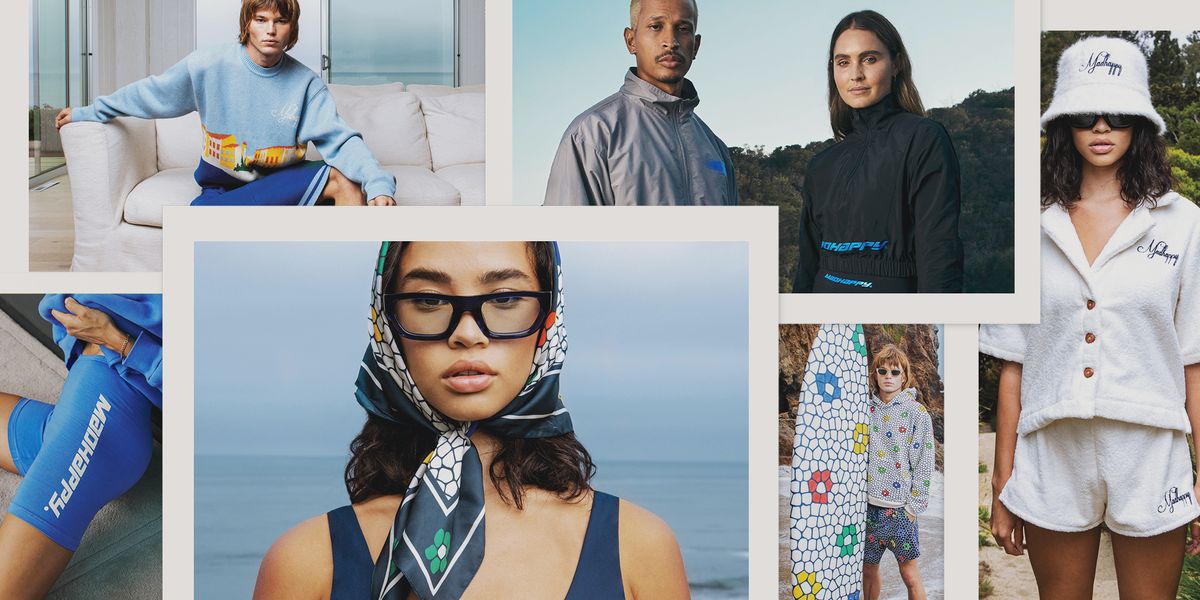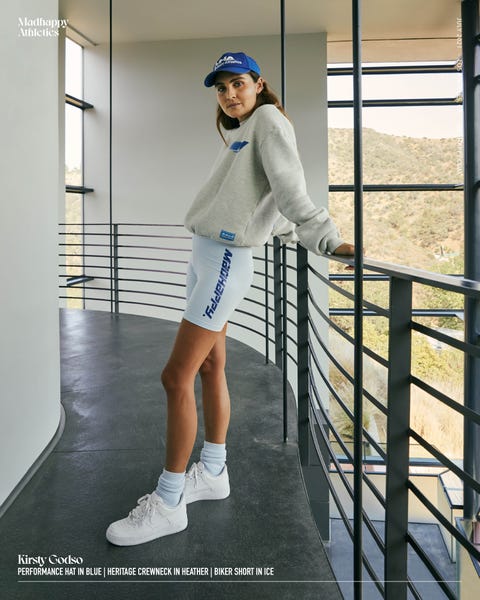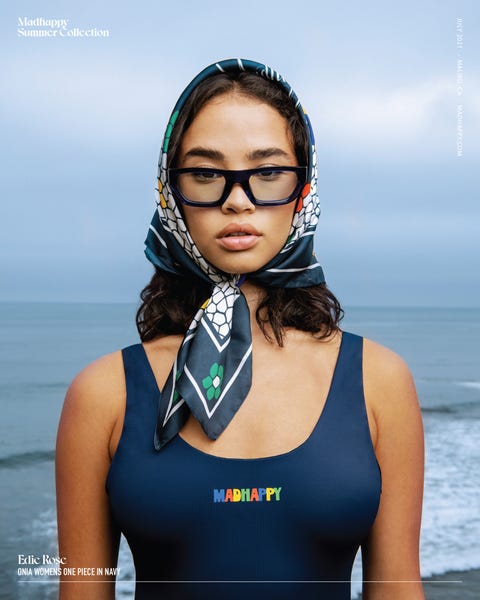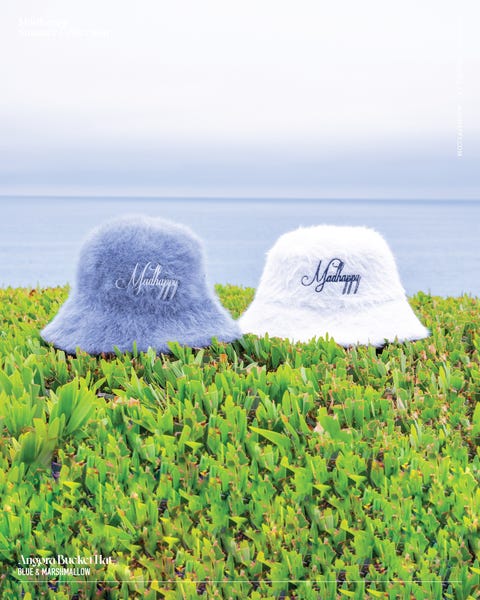Products You May Like
Style Points is a weekly column about how fashion intersects with the wider world.
I picked an interesting time to talk to Peiman Raf. When we spoke last week, Simone Biles had withdrawn from several Olympic competitions citing her mental health, putting a global spotlight on the issue. Despite the fact that we’re in an era that purports to be “open” about mental health, amid the overwhelming support Biles received there was still a fair amount of resistance to her statement, with critics invoking hurtful terms like “quitter.”
At 27, Raf is relatively young, but old enough to remember a time long before the words “mental health” were appearing in ESPN headlines, when talking about these topics was shrouded in shame. Madhappy, the brand he founded with his brother Noah and his friends Mason Spector and Joshua Sitt, is a fairly straightforward line of bright, sporty loungewear and athleisure pieces with sunny graphics: think rainbow-colored motifs and Alice in Wonderland-sized blossoms. Fuzzy bucket hats are involved. But in the way brands increasingly seem to be these days, it’s also a platform. The quartet envisions Madhappy as a way to draw attention to emotional wellbeing through projects like a text hotline; a blog, The Local Optimist, that features stories about topics like eating disorders and setting boundaries; a partnership with The Jed Foundation, a mental health and suicide prevention nonprofit focusing on teens and young adults; and a freshly-launched podcast featuring guests like Ramy Youssef and Emma Chamberlain.
If the idea of a fashion brand entering the proverbial chat when it comes to a serious issue like mental health strikes you as shallow, Raf is a pretty good candidate to change your mind. Beaming in from L.A. wearing a bright-purple Hard Rock Café T-shirt (he jokes that it’s “vintage Thursday”), he explains that in the same way that preventative physical health became a growing concern in the ’70s and ’80s (complete with juicing fads and jogging yuppies), a movement is now afoot when it comes to safeguarding our mental health. And he thinks that fashion does have a place in that conversation. “People really want to talk about this stuff,” he says, “and no one’s doing it. Why can’t we be like the Nike of mental health? Or what Patagonia [did for] sustainability? Why can’t we do that for mental health?”
Growing up in L.A., Raf and his friends encountered “all these cool streetwear brands that were coming up when we were in high school. They were super cool, but they didn’t make you feel good when you walked in the store.” Madhappy’s message of optimism and inclusivity is a new vision of what luxury can be, falling somewhere between ’90’s streetwear and the purpose-driven brands that cropped up in the aughts, and it has drawn impressive investors from LVMH to Tommy Hilfiger. Fashion, Raf says, “has such a strong tie to mental health because it’s the way people express themselves. And the message you’re wearing is who you’re trying to be, in some ways, or who you want to be.”
It can also create a community. “Over time,” he says, “there are going to be fans of just The Local Optimist. They don’t need to buy Madhappy to be a part of it.” Someone could also be a fan of the clothing, he allows, without awareness of the brand’s other efforts. “We just try to let people interact however it makes sense for them.”
Spector, who came up with the name for the label, recalls that its inception came at a time when he was “super depressed” and considering dropping out of college. Back then, he says, “I really had no sense of self-identity or purpose and was feeling very low.” He saw the brand as a way to talk about those feelings, and when the group founded Madhappy four years ago, adds Sitt, “this kind of open mental health discussion was still out of the norm.” That’s less the case now, as we’ve seen with the conversations around Biles and Naomi Osaka, but also for young men in the founders’ cohort, mental health can still be a challenging thing to open up about. (Even, it appears, if you’re a celebrity: “It’s been a lot easier to get female guests on versus male guests,” when booking the podcast, Raf admits.)
Admittedly, Madhappy is operating in an imperfect world, one where a lack of universal health care and limited access to public mental health resources are the biggest challenges facing our collective mental health picture. Just as Patagonia made inroads into the public sphere, like joining a lawsuit to protect two Utah national monuments, Raf says Madhappy may move beyond the private sector with its own efforts. “Over time, we want to make as big of an impact as possible,” he says. “If that means being more involved on the research side [or] the government side, I do think that it’s definitely leaning more that way.” In fact, in the fall, the label will launch its Alumni collection, with a portion of the proceeds going to academic mental health research.
At the end of the day, though, Raf says, he has a simple mission: He just wants to make “cool products that people like.” That, presumably, makes everyone a little happier.
This content is created and maintained by a third party, and imported onto this page to help users provide their email addresses. You may be able to find more information about this and similar content at piano.io




